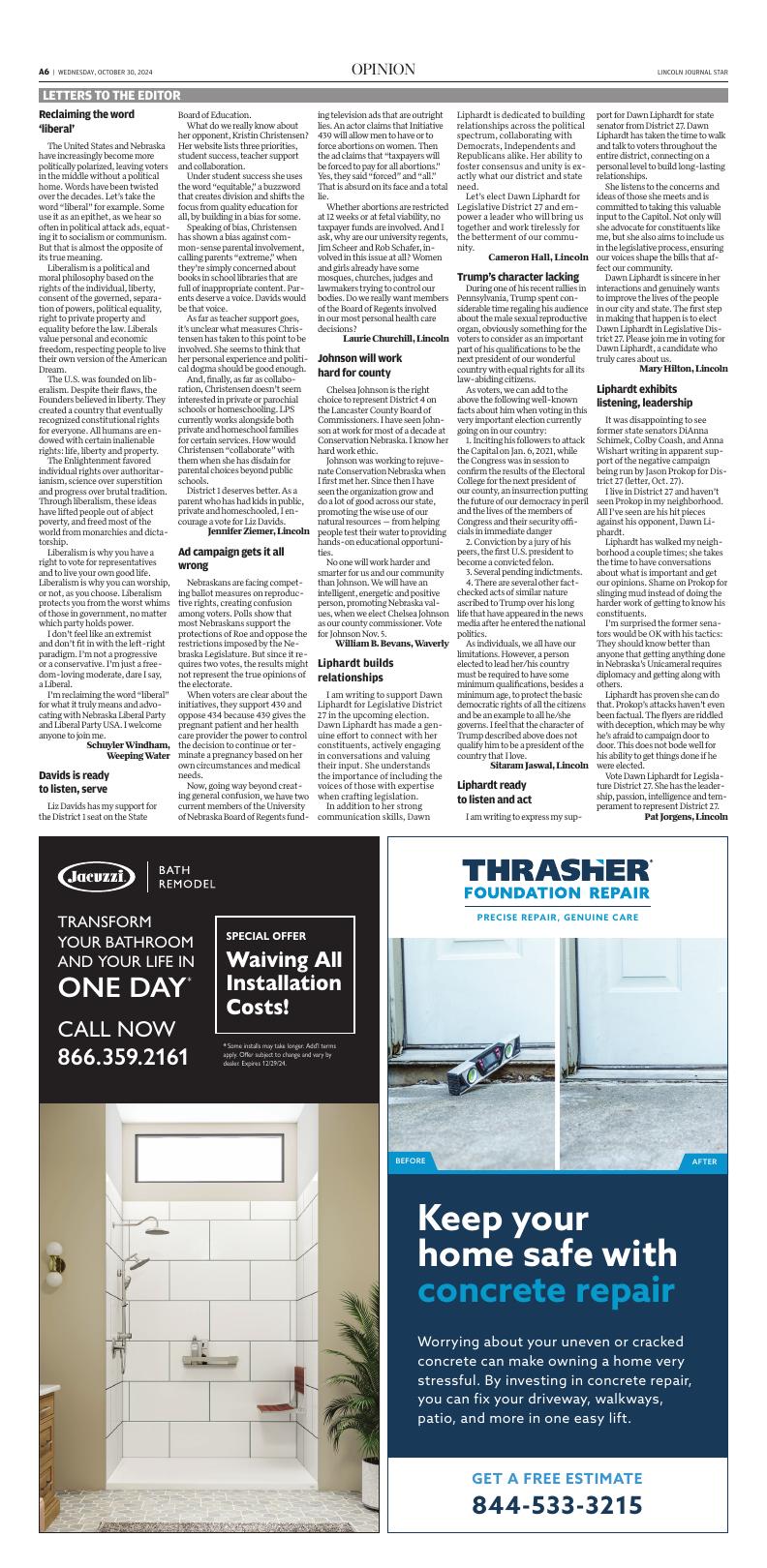A century after Native Americans got the right to vote, they could put Trump or Harris over the top
RED SPRINGS, N.C. — Native American communities were decisive voting blocs in key states in 2020, and with the 2024 race remaining stubbornly close both campaigns tried to mobilize Native voters in the final weeks of the presidential election.
When it comes to messaging, the two campaigns could not be more different, many Native voters said. It's been 100 years since Native Americans were given the right to vote, with the passage of the Snyder Act in 1924, and whichever campaign is able to harness their power in this election could swing some of the most hotly contested counties in the country.
In swing states like Arizona, North Carolina, Michigan and Nevada, the candidates — particularly Vice President Kamala Harris — targeted Native Americans with radio ads and events on tribal lands featuring speakers like Bill Clinton and Donald Trump Jr.
Native American voters tend to favor Democrats, but they're more likely to vote Republican than Latinos or African Americans, said Gabriel R. Sanchez, a senior fellow at the Brookings Institution. He said they are one of the least partisan and youngest voting demographics in the country, often motivated by issues that directly impact their communities, like land rights and environmental protections.
In 2020, the Biden administration campaigned in several tribal nations in critical states like Wisconsin and Arizona, and precincts on tribal lands there helped narrowly tip the election for the Democrats.
As part of a $370 million ad campaign this month, including on several reservations, Harris said the U.S. should honor treaty rights and uphold tribal sovereignty. Crystal Echo Hawk, CEO of Illuminative, a nonprofit that works to increase the visibility of Native Americans, said those commitments, along with the economy and environmental protections, are the top issues Native voters identified in Illuminative's surveys.
"I haven't seen the same kind of targeted messaging and outreach from the Trump campaign," she said. Harris also stands to inherit some goodwill left from the administrations of Barack Obama and Joe Biden, she said.
Obama increased consultation with tribes, and Biden appointed more than 80 Native Americans to senior administration roles.
"The minute that the announcement came that Harris was stepping into the race, you saw people organize overnight," Echo Hawk said. Trump, she said, will have to contend with his reduction of Bears Ears National Monument by 85% and his revival of the Keystone XL pipeline, both unpopular with Indigenous peoples.
Biden formally apologized for the country's support of Native American boarding schools and its legacy of abuse and cultural destruction. It was met with praise from tribal leaders.
The Trump campaign hasn't released ads targeting Native Americans, but U.S. Sen. Markwayne Mullin, a Republican from Oklahoma and a citizen of the Cherokee Nation, stumped for the former president in Native communities in North Carolina, a swing state that was decided by less than one point in 2020.
This month, Mullin sat with Donald Trump Jr. and former Hawaii Rep. Tulsi Gabbard, a former Democrat who recently announced she is joining the Republican Party, on a small stage in front of several bales of hay to take questions from an audience of a couple hundred people. They discussed issues ranging from the economy to tribal self-determination.
The event was on a small farm in Red Springs, N.C., part of the traditional homelands of Mullin's ancestors and current home to the Lumbee Tribe, a state-recognized tribe with about 55,000 members.
The federal recognition of the Lumbee is opposed by several tribal nations, including Mullin's own tribe, the Cherokee Nation in Oklahoma. The Lumbee's push for federal recognition became a rare issue where both parties agree. Last month, Trump said he would sign legislation granting federal recognition to the Lumbee. Harris called the Lumbee's tribal chairman last week to discuss the legislation.
"This is an injustice that needs to be fixed when it comes to Lumbees," Mullin told the crowd. "This is absolutely absurd. It needs to be done. I was so proud to hear President Trump say that he would sign it."
Mullin soon touched on an area where the two candidates differ: energy policy. He laid out Trump's policy in one recognizable term that was echoed by the audience: "Drill, baby, drill."
Both the Biden and Trump administrations pushed to produce more oil and gas than ever, including extractive energy projects that were opposed by Indigenous peoples. However, Native leaders expressed concern that Trump is more likely to erode protections for tribal lands.
Mullin suggested that if tribal nations are truly sovereign, they should be able to conduct energy extraction without the burden of federal intervention. He said the right of tribes to govern their own lands is the victim of federal bureaucracy.
He promised Trump would have a deep understanding of tribal sovereignty.
That message resonated with Robert Chavis Jr., a physical education teacher and Army veteran who was at the rally and will vote for Trump. Chavis, a member of the Lumbee Tribe, said tribal nations aren't just governments, they're businesses, and the U.S. is no different. "I feel like you don't need a politician in there. We need a businessman to run the country like it should be."
Other Lumbee voters aren't as convinced.
At her art gallery a few miles away in Pembroke, Janice Locklear said Trump promised he would federally recognize the Lumbee last time he was in office, and she had no reason to believe he could accomplish it this time. She also said what Trump did on Jan. 6, 2021, represents a threat to democracy.





























































